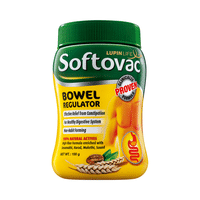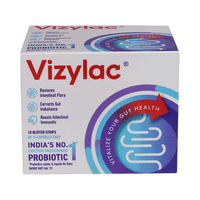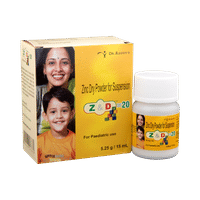Diofen 50 mg/500 mg/20 mg Tablet

food interaction for Diofen
alcohol interaction for Diofen
pregnancy interaction for Diofen
lactation interaction for Diofen
food
alcohol
pregnancy
lactation
Diofen 50 mg/500 mg/20 mg Tablet is to be taken with food.
None
None
CAUTION
It is not known whether it is safe to consume alcohol with Diofen 50 mg/500 mg/20 mg Tablet. Please consult your doctor.
CONSULT YOUR DOCTOR
Information regarding the use of Diofen 50 mg/500 mg/20 mg Tablet during pregnancy is not available. Please consult your doctor.
CONSULT YOUR DOCTOR
Information regarding the use of Diofen 50 mg/500 mg/20 mg Tablet during breastfeeding is not available. Please consult your doctor.
CONSULT YOUR DOCTOR
SALT INFORMATION FOR Diofen
Diclofenac(50mg)
Uses
Diclofenac is used for pain relief. It relieves pain in conditions like headache, mild migraine, muscle pain, dental pain, rheumatoid arthritis, ankylosing spondylitis, osteoarthritis, or painful menses.
How it works
Diclofenac is a non-steroidal anti-inflammatory drugs (NSAID). It works by blocking the release of certain chemical messengers that cause pain and inflammation (redness and swelling).
Common side effects
Nausea, Headache, Dizziness, Vomiting, Flatulence, Constipation, Diarrhea, Abdominal pain, Dyspepsia, Gastrointestinal bleeding, Gastrointestinal ulcer, Rash, Application site irritation, Injection site pain, Chest pain, Hypersensitivity, Angioneurotic edema, Platelet disorders, Convulsion, Visual disturbance, Ringing in ear, Colitis, Stevens-Johnson syndrome, Myocardial infarction
Paracetamol(500mg)
Uses
Paracetamol is used for pain relief and fever. It is used to relieve pain in conditions like headache, muscle pain, or dental pain.
How it works
Paracetamol is an analgesic (pain reliever) and anti-pyretic (fever reducer). It works by blocking the release of certain chemical messengers that cause pain and fever.
Common side effects
Nausea, Vomiting, Insomnia (difficulty in sleeping), Headache, Constipation, Itching, Nephropathy, Hypersensitivity, Platelet disorders, Depression, Confusion, Hallucination, Abnormal vision, Hypoglycemia (low blood glucose level), Sterile pyuria, Liver toxicity, Hemorrhage
Famotidine(20mg)
Uses
Famotidine is used in the treatment of gastroesophageal reflux disease (acid reflux), peptic ulcer disease and heartburn.
How it works
Famotidine is a histamine H2 receptor antagonist. It works by reducing the acid produced in the stomach. This helps to relieve acid-related indigestion and heartburn.
Common side effects
Headache, Diarrhea, Drowsiness, Constipation
SUBSTITUTES FOR Diofen
No substitutes foundExpert advice FOR Diofen
- You have been prescribed Diclofenac to relieve pain and inflammation.
- Take it with food or milk to prevent upset stomach.
- Take it as per the dose and duration prescribed by your doctor. Long term use may lead to serious complications such as stomach bleeding and kidney problems.
- It may cause dizziness, drowsiness or visual disturbances. Use caution while driving or doing anything that requires concentration.
- Avoid consuming alcohol while taking Diclofenac as it can cause excessive drowsiness and increase your risk of stomach problems.
- Inform your doctor if you have a history of heart disease or stroke.
- Your doctor may regularly monitor your kidney function, liver function and levels of blood components, if you are taking this medicine for long-term treatment.
Frequently asked questions FOR Diofen
Diclofenac
Q. Is Diclofenac a good painkiller?
Diclofenac is effective in relieving pain and inflammation. It is used for various sorts of pain such as sprains, strains and other injuries. It is also helpful in various types of arthritis, gout, pain and inflammation following surgery.
Q. Is Diclofenac a narcotic?
No, Diclofenac is not a narcotic. It belongs to non-steroidal anti-inflammatory drugs (NSAIDs) group of medicines.
Q. Does Diclofenac get you high?
No, Diclofenac does not get you high. It does not have an abuse potential (drug-seeking behavior) and does not cause physical or psychological dependence. However, if you do not feel well, consult your doctor.
Paracetamol
Q. What if I vomit after taking Paracetamol?
If you vomit in less than 30 minutes after having a dose of Paracetamol tablets or syrup, retake the same dose again. If you vomit after 30 minutes of a dose, you do not need to take another one until the next standard dose.
Q. When will I feel better after taking the Paracetamol?
Usually, you will start feeling better after about half an hour of taking a Paracetamol.
Q. How often can I take the Paracetamol?
You should only take four doses of Paracetamol in 24 hours. There should be a gap of at least 4 hours between two doses. Do not take Paracetamol for more than 3 days without consulting a doctor first.
Famotidine
Q. Can I take Famotidine empty stomach?
Famotidine may be taken with or without food. It can be taken once daily before bedtime or twice daily in the morning and before bedtime, as recommended.
Q. How long does it take for Famotidine to start working?
Famotidine starts working as fast as within 15 minutes from when it is given. Its effect is seen to last all day or all night.
Q. What is the difference between Famotidine and Omeprazole?
Famotidine and Omeprazole belong to different groups of medicines. While Famotidine belongs to histamine H2 antagonists group, Omeprazole belongs to proton pump inhibitors group. Both these medicines work by reducing the amount of acid made by the stomach, to relieve the symptoms and allow healing.






















